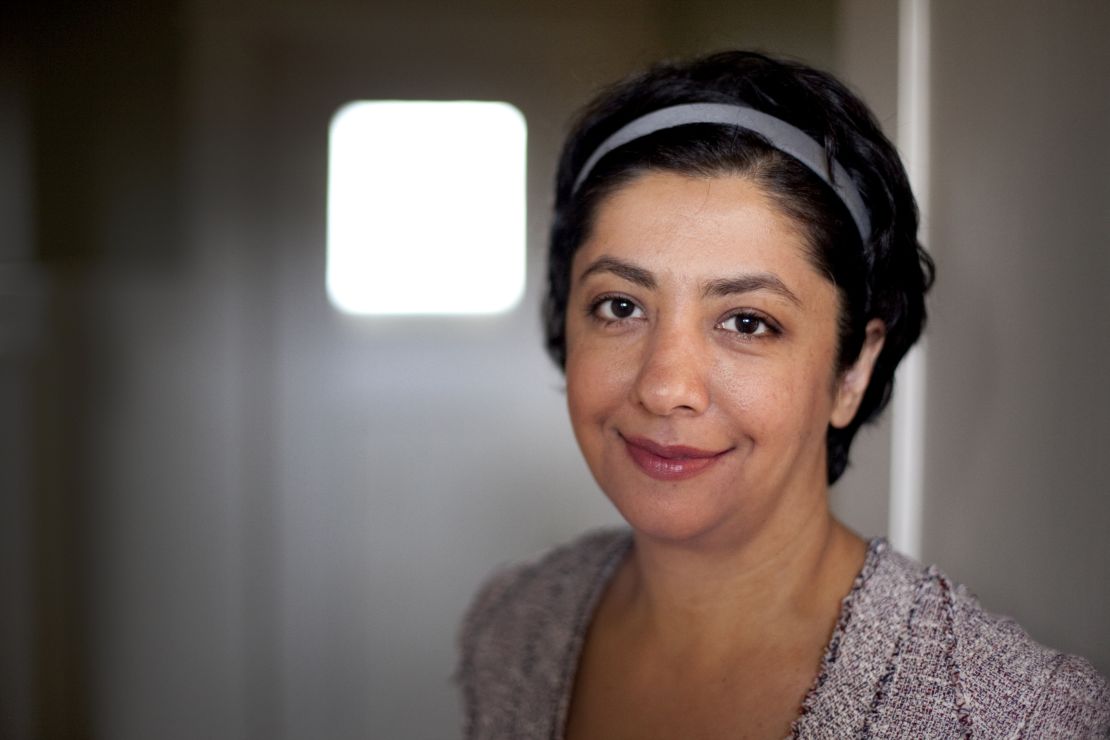Editor’s Note: Banafsheh Keynoush is an independent scholar and private-sector consultant. Previously, she was an accredited interpreter with the European Commission, and worked as interpreter with three Iranian presidents and a Nobel peace laureate, the United Nations and the Iran-U.S. Claims Tribunal.
Story highlights
Iran must be invited to potential Syria peace talks, Keynoush says
Iran sees itself as a credible regional broker
She says fighters in Syria could turn to the Israeli-occupied Golan area
The Syrian army’s latest offensive has thwarted U.S. expectations of a decisive victory by rebels to oust President Bashar Al Assad.
Now the U.S. must talk to Assad’s key ally Iran in Geneva 2, an international meeting looking to resolve the Syrian conflict which is scheduled for next month if the opposition agrees on its representation.
Iran believes that it holds the key to resolving the Syrian conflict as a credible broker and other stakeholders must stop ignoring it. Last year, it was barred by the West from Geneva 1.
Since then, Washington and the European Union have split with France and the UK over when to supply heavier arms to rebels.
France and the UK have suggested that if the Geneva talks fail to secure peace, they would be willing to arm moderate rebels not opposed to the West – but there is no easy way of guaranteeing a rebel group’s loyalties.

Iran says the supply of light arms, which it believes comes from the U.S. and its allies, must stop to allow a power transition in Syria in preparation for its presidential race in 2014. It says the arms created a crisis that robbed the Syrian people and its president of an opportunity to embark on reforms.
Iran’s deputy foreign minister and a chief negotiator on Syria, Hussein Amir Abdulahian, said to the official Al Alam news network that Syria was only facing a minor Arab Spring in March 2011, but clandestine arms supplies militarized the conflict.
Last year, the New York Times reported the U.S. was helping to send light arms to Syrian rebels. In March, the paper reported how that CIA program had expanded.
But Iranian officials have alluded to earlier U.S. interventions. In September 2010, President Mahmoud Ahmadinejad gestured to reporters in New York where I was present that the “Americans were up to some mischievous actions in Syria.” He did not specify what he meant but made an unexpected stop in Damascus on his way to New York.
Abdulahian stressed that Iran will not allow the Syrian state to collapse. Syria is Iran’s first line of defense against Israel. In 2006, when Israel tried to contain Iranian power in the region – by attacking its other ally, Hezbollah, in southern Lebanon – with Iran’s help, Hezbollah forced Israel to retreat.
Iran also insists the Syrian state is strong and its army is united despite occasional defections. It says countries that say otherwise are aiming to deflect attention away from Arab rebels who pose a bigger problem to world peace than Assad’s government.
This explains why Turkey and Saudi Arabia, who are believed to have encouraged the arming of rebels, have since taken steps to bar rebels from leaving Syria.
According to the daily Hurriyet, Turkey will construct a protective barrier across a border gate with Syria. Arab News, which is part-owned by a senior Saudi prince, cited the Saudi Interior Ministry warning Saudis fighting in Syria will be arrested when they return home.
Iran argues Syria’s neighbors cannot afford to watch the conflict spread in the region. In recent months Iranian Foreign Minister Ali Akbar Salehi has traveled to Jordan, Turkey and Saudi Arabia to bridge the gap in their understanding of Syria’s future.
Abdulahian claims the three states are drawing closer to it in seeking a regional political solution to the crisis in Syria, which in Iran’s view should encourage talks between the Syrian government and opposition forces.
Jordan is concerned by the overflow of Syrian refugees, Turkey faces internal unrest partly for mismanaging the Syrian crisis, and Saudi Arabia is wavering over its Syria policy given Washington’s reluctance to heavily arm rebels even with emerging evidence that the Syrian army used chemical gas to contain the rebels.
The head of Iran’s National Security and Foreign Policy Parliamentary Commission, Alaadin Boroujerdi, says Washington’s reluctance is because the heavy arms could be used against Israel.
Israel should take this as a warning from Iran. In May, Israel said it attacked an Iranian missile shipment to Hezbollah in Syria, and the Syrian army said it exchanged fire with Israeli forces in Golan, which the Iranian-backed Press TV reported. The Iran-based journal, Iranian Diplomacy, termed the attacks a “game changer.”
An alarmed Iran signaled a shift in battle front tactics in Syria. Abdulahian warned that he doubted Israel could defend itself if Arab rebels were to attack the Golan Heights, a segment of Syrian territory which Israel took over in the 1967 Arab-Israeli War.
Iran does not want a takeover of Golan. Its occupation by Israel lets Iran shame Arab leaders for their inability to reclaim it. But an upheaval in Golan might suit Iran if Israel does not stop attacking its allies.
On May 30, Assad warned Israel he was under pressure by the Syrian people to retake Golan. A conflict between Israel and Syria is bound to spread to Gaza, the West Bank and the Sinai where Arabs dispute the 1967 occupation by Israel of those lands.
It is uncertain if that is a fight Assad wants. On June 6, the Syrian army retook a crossing in Golan from Arab rebels, signaling to Israel that it had a better chance of protecting itself having Assad in power.
That might just be the right reason to talk to Iran when it comes to Syria.
The opinions expressed in this commentary are solely those of Banafsheh Keynoush


























































































































































































































